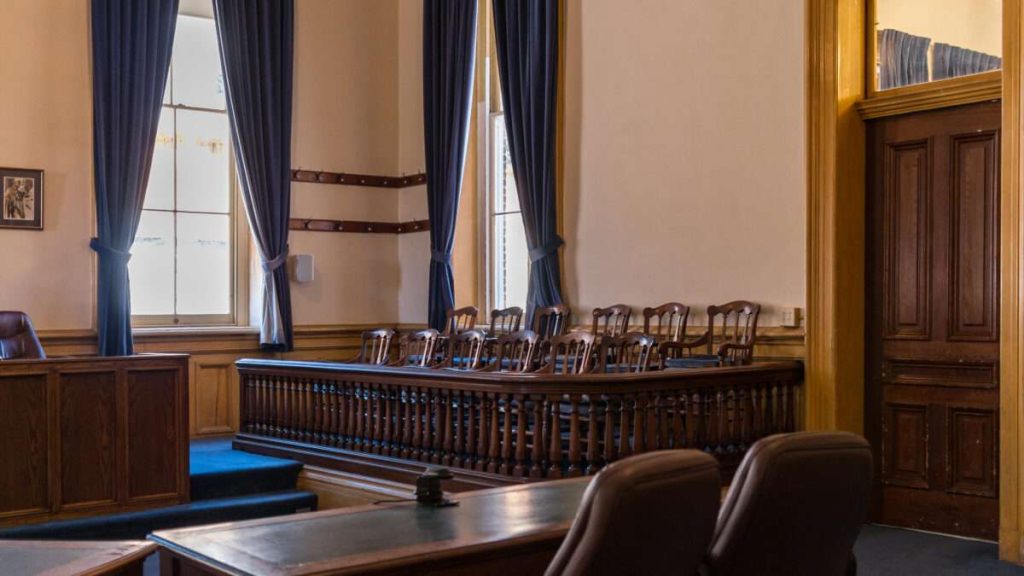The vast majority of states—44, to be exact—suspend people from serving on juries when they are convicted of a felony, and in many states the suspension is permanent. That means millions of people—especially groups of people convicted at relatively high rates, such as black and Hispanic men—are disqualified from jury service, quietly resulting in what some have called the “whitewashing” of American juries.
At least two states, New York and New Jersey, would like to change that.
The New York proposal, which is currently under review by the state’s Senate Judiciary Committee, would repeal the clause in the state’s judiciary law that blocks individuals convicted of felonies from serving on juries. New Jersey’s bill, which was introduced in January and endorsed by Gov. Phil Murphy on May 1, would amend the equivalent clause in its code to permit most felons to serve on juries, barring only people convicted of murder and aggravated sexual assault.
“Jury exclusion laws bar more than 20 million people nationwide from serving,” said Wanda Bertram, a spokesperson for the Prison Policy Initiative. “With this bill, New Jersey has the chance to reverse one of the harshest jury exclusion laws in the country, and to set an example that other states can follow to make their criminal legal systems fairer and more effective.”
In New Jersey, between 438,000 and 533,000 people cannot serve on a jury due to a previous criminal conviction. Of those, between 219,000 and 269,000 are black, representing between 23 percent and 29 percent of the African American population, meaning black New Jerseyans are five times less likely than average to be allowed to serve on a jury.
New Jersey is not alone, nor is its example the most alarming. Some states, such as Texas, disqualify individuals from jury service for lesser crimes such as misdemeanor theft. In other areas of the country, the racial disparity caused by jury disqualification is even more pronounced: the American Civil Liberties Union (ACLU) of New York found that 40 percent of black men in Manhattan cannot serve on juries due to their criminal histories, and in one county in Georgia, 63.7 percent of black men are barred.
The result is that some districts’ juries do not fairly represent the racial composition of the community, according to a coalition of 50 nongovernmental organizations that wrote an open letter to New Jersey’s Gov. Murphy in April. “By denying so many people—particularly Black and other people of color—from serving on juries, our juries become whitewashed, failing to reflect the diversity of our state, and people of color accused of crimes are not judged by a jury of their peers,” the coalition stated.
Advocates for reform have some reason to be hopeful, according to James Binnall, a law professor at California State University at Long Beach and the author of Twenty Million Angry Men: The Case for Including Convicted Felons in Our Jury Process, which was published in 2021. Binnall tells Reason that, since he began working on the issue a decade ago, legislative efforts to eliminate or reduce jury duty suspension for felons have succeeded in California, Louisiana, Connecticut, and Washington, D.C., and are ongoing in Michigan, New Jersey, and New York.
Marleina Ubel, a senior policy analyst for the think tank New Jersey Policy Perspective, commended reform efforts in a statement provided to Reason via email: “More diverse and representative juries will not only enhance the legitimacy of verdicts but also improve the quality of deliberations, and that makes the justice system more just for everyone involved.”
The post New York and New Jersey Want To Let Felons Serve on Juries. Here’s Why. appeared first on Reason.com.






